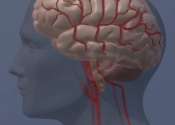Tumor imaging technique has potential as anti-cancer weapon, mouse study shows
A new anti-cancer strategy wields light as a precision weapon. Unlike traditional light therapy—which is limited to the skin and areas accessible with an endoscope—this technique can target and attack cancer cells that ...
Jan 26, 2018
0
230







